One of the most difficult parts about interviewing with a new company can be negotiating salary. There are tons of tips out there, and one of the most helpful is to know what someone in that position might earn before going into the negotiation.
It may seem like a small detail, but negotiating on the front end can have an exponential effect on your earnings over time.
One calculation shows that with an average annual pay increase of five percent, an employee whose starting annual salary was $55,000 rather than $50,000 would earn an additional $600,000+ over the course of a 40-year career.
How to go into your new job negotiation as prepared as possible? We’d love to share a few online calculators with you!
Hired
Hired offers a free salary calculator for software engineers, data scientists, product managers, designers and sales representatives.
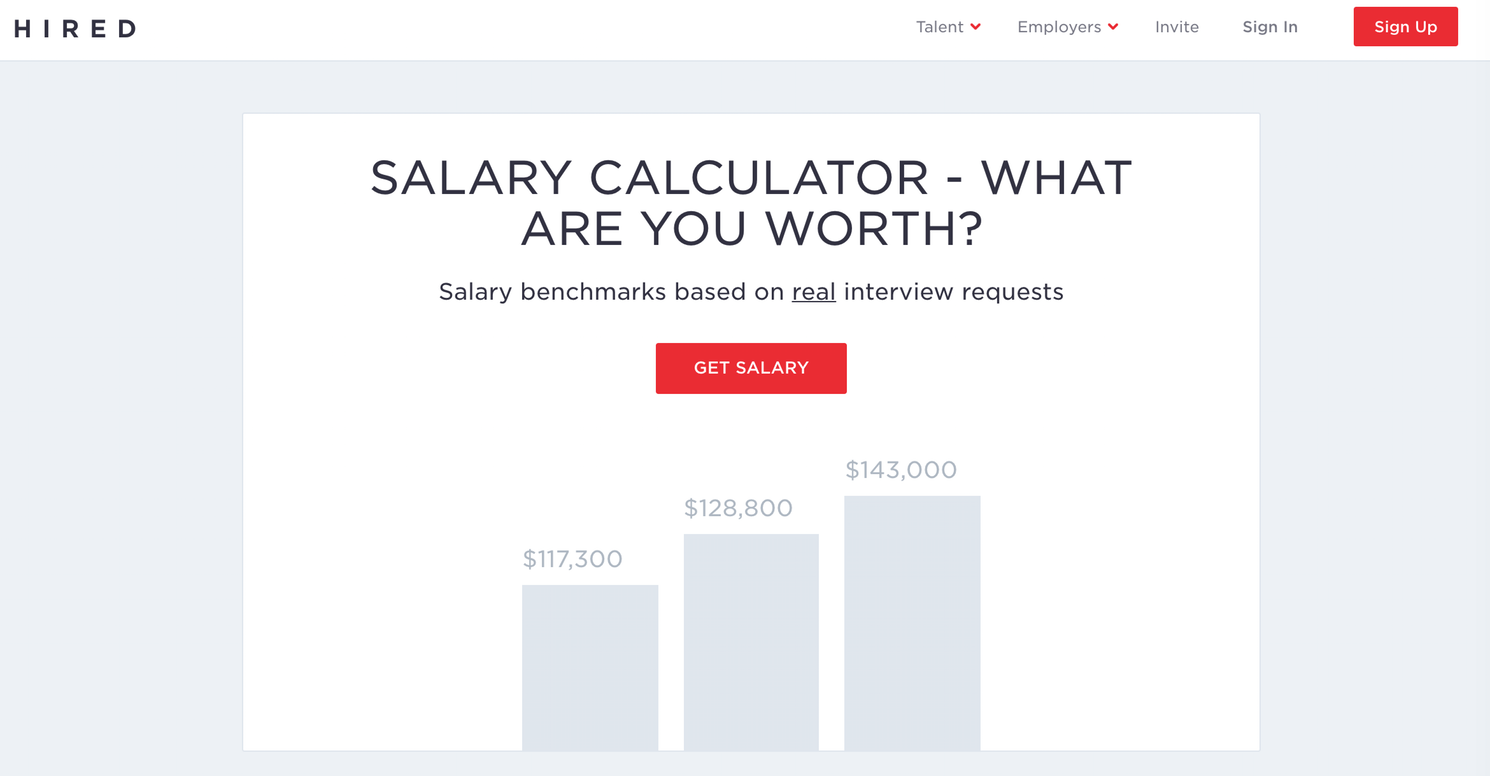
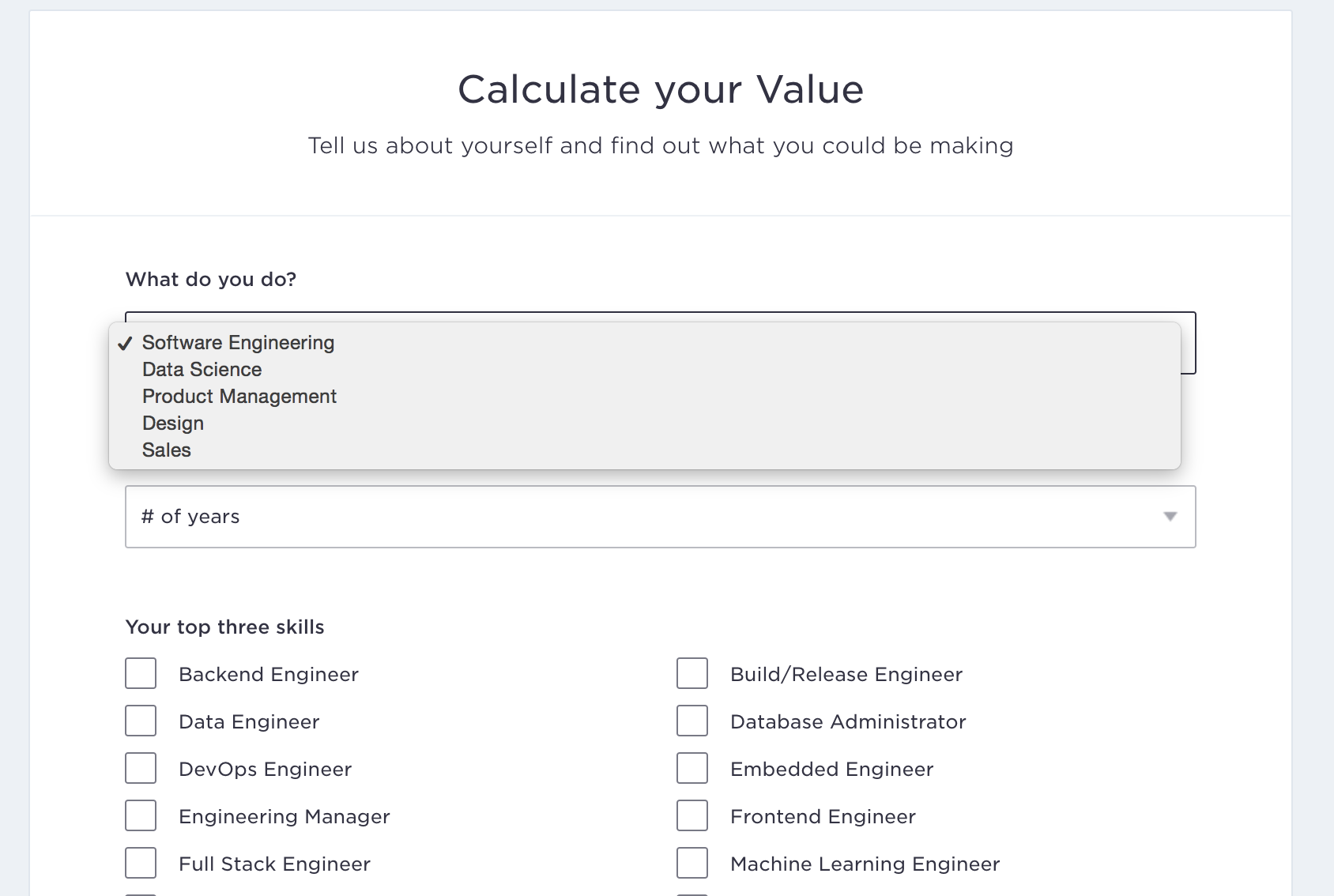
LinkedIn’s new Salary tool provides free median base salary and median total compensation information when you share your own salary (privately and for data gathering purposes).
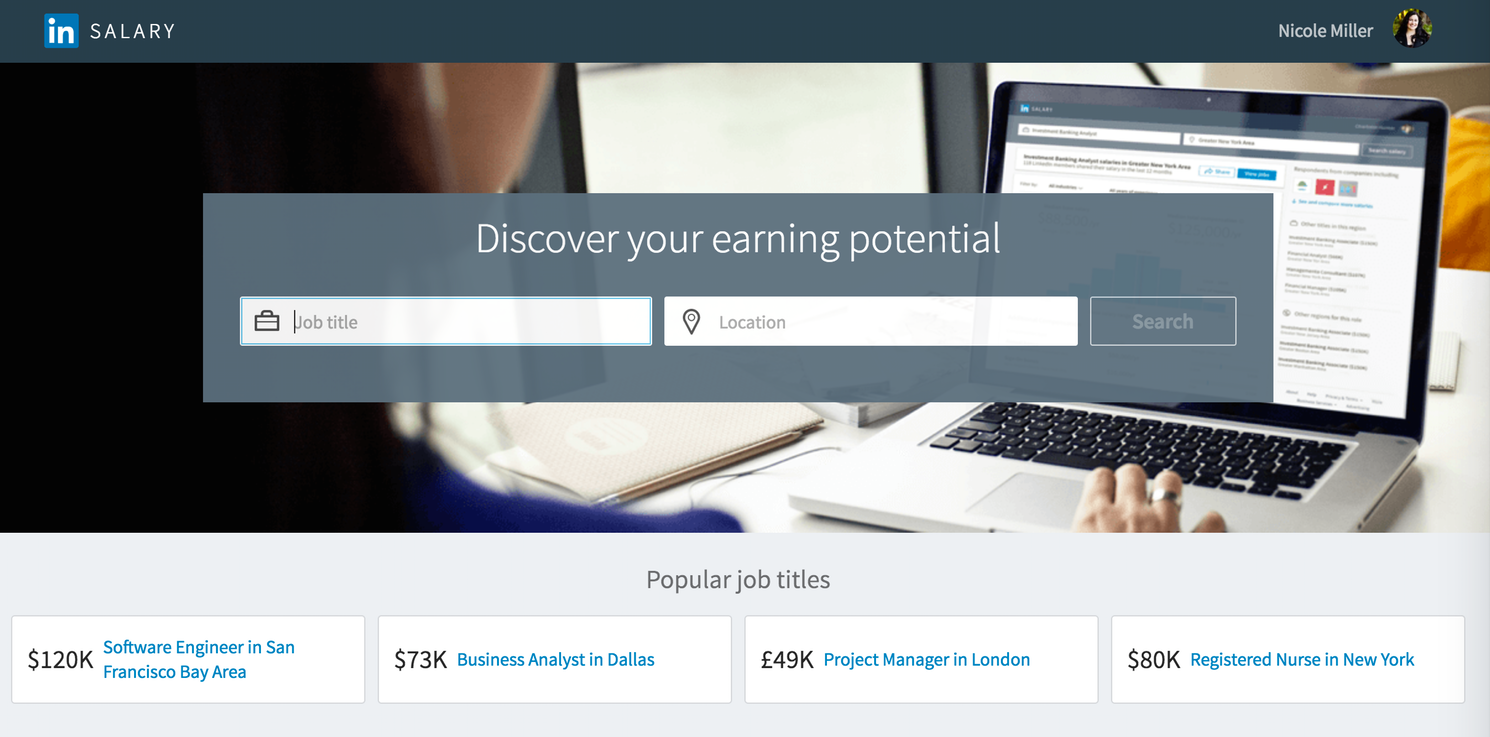
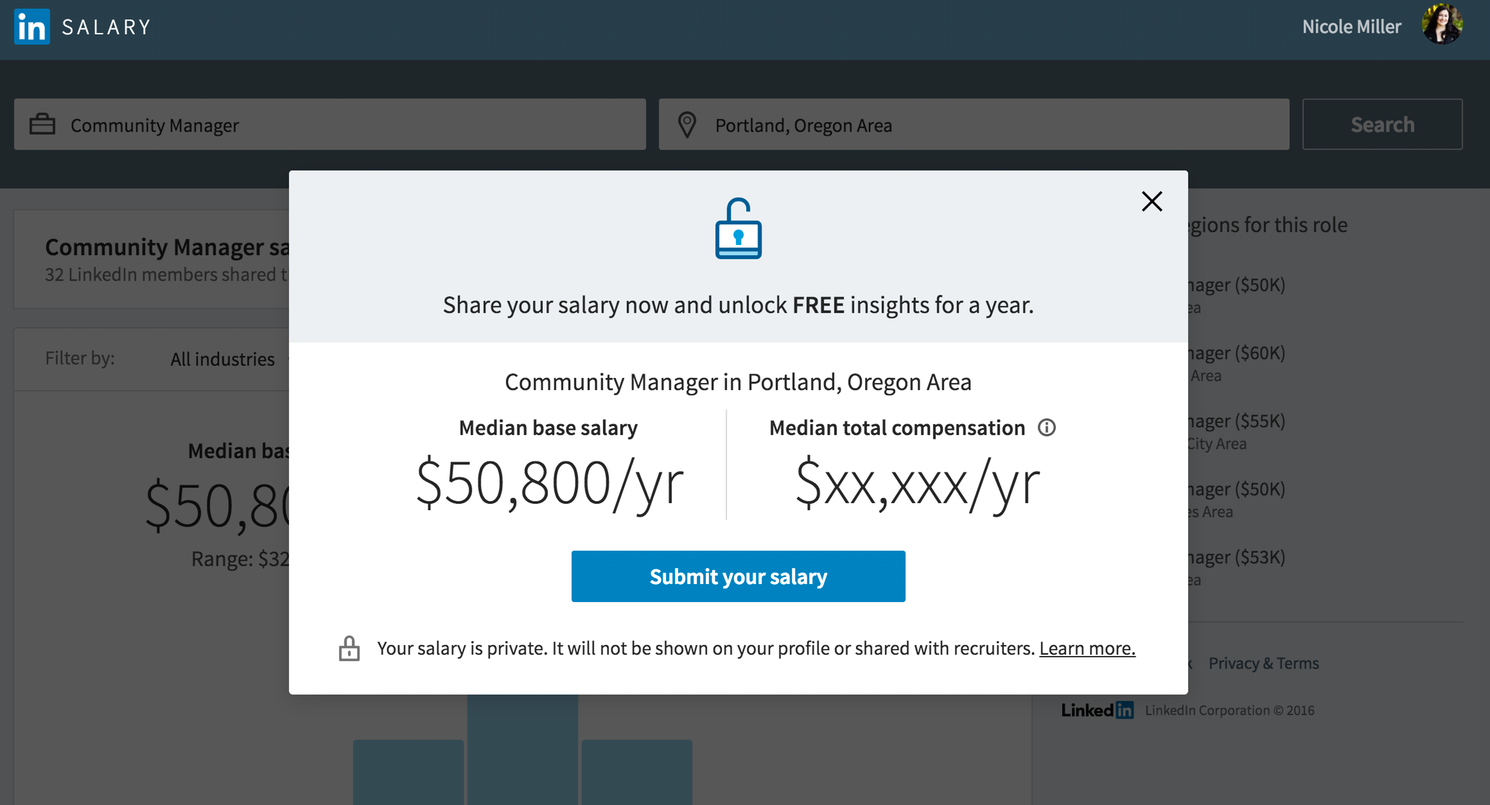
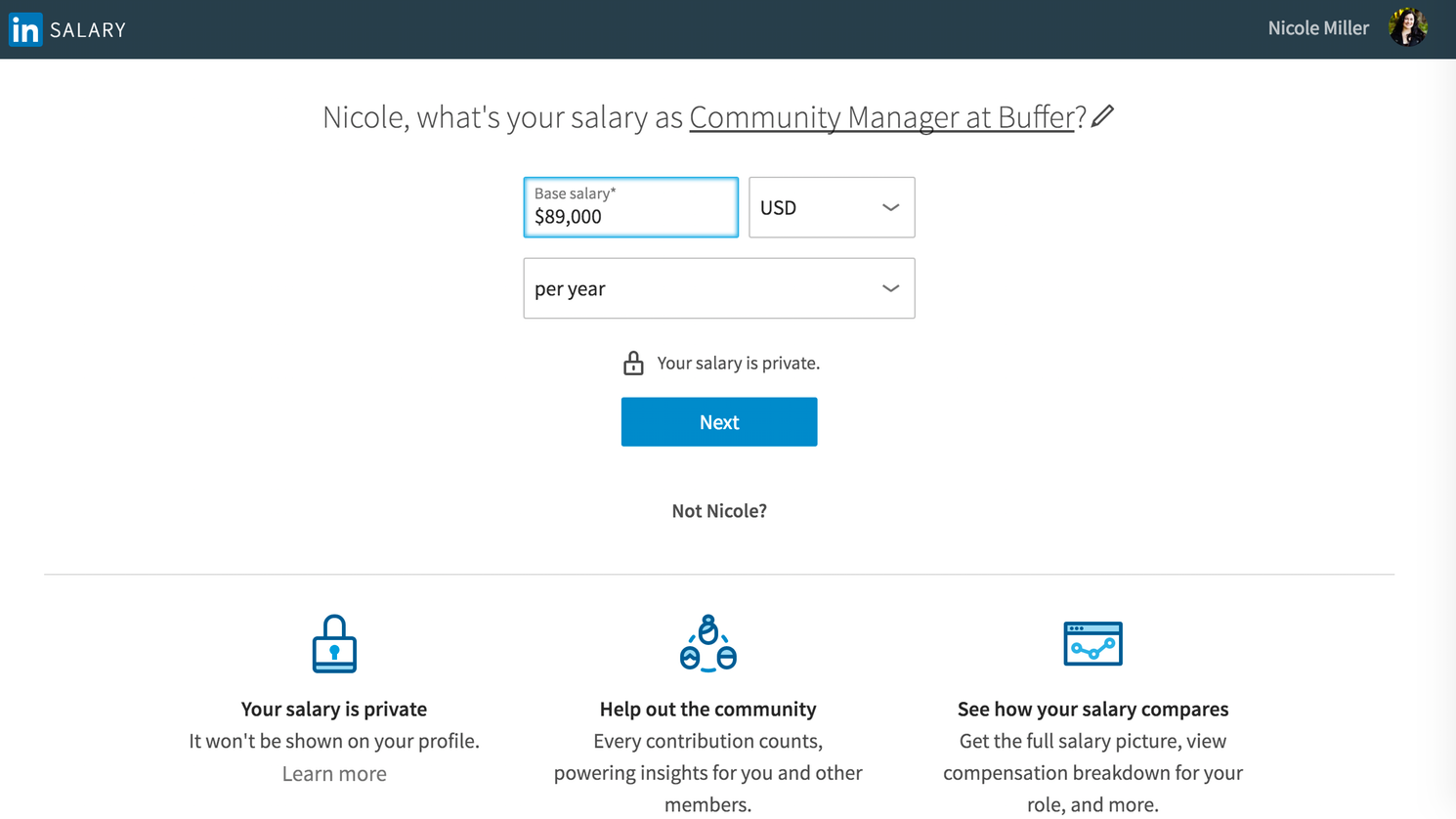
Payscale
Payscale allows you to compare your salary in real-time with others around the world.
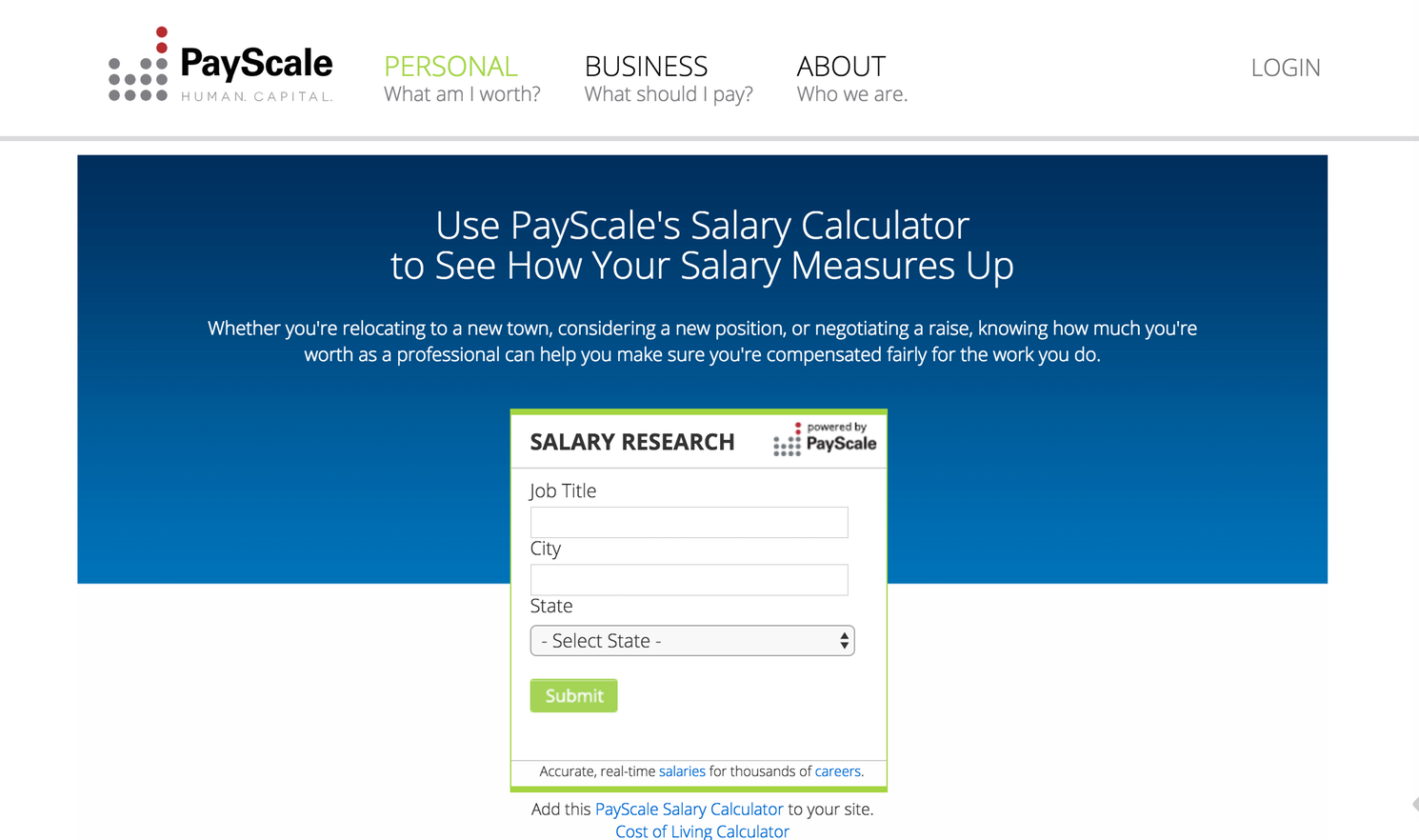
Glassdoor
Glassdoor uses salaries submitted to them to give you an idea of how much you might make in a particular role and location, or even at a specific company.

>Stack Overflow
Stack Overflow is an online community for programmers to connect, search for jobs and support one another! Their salary calculator shows what you’d make working for Stack Overflow.
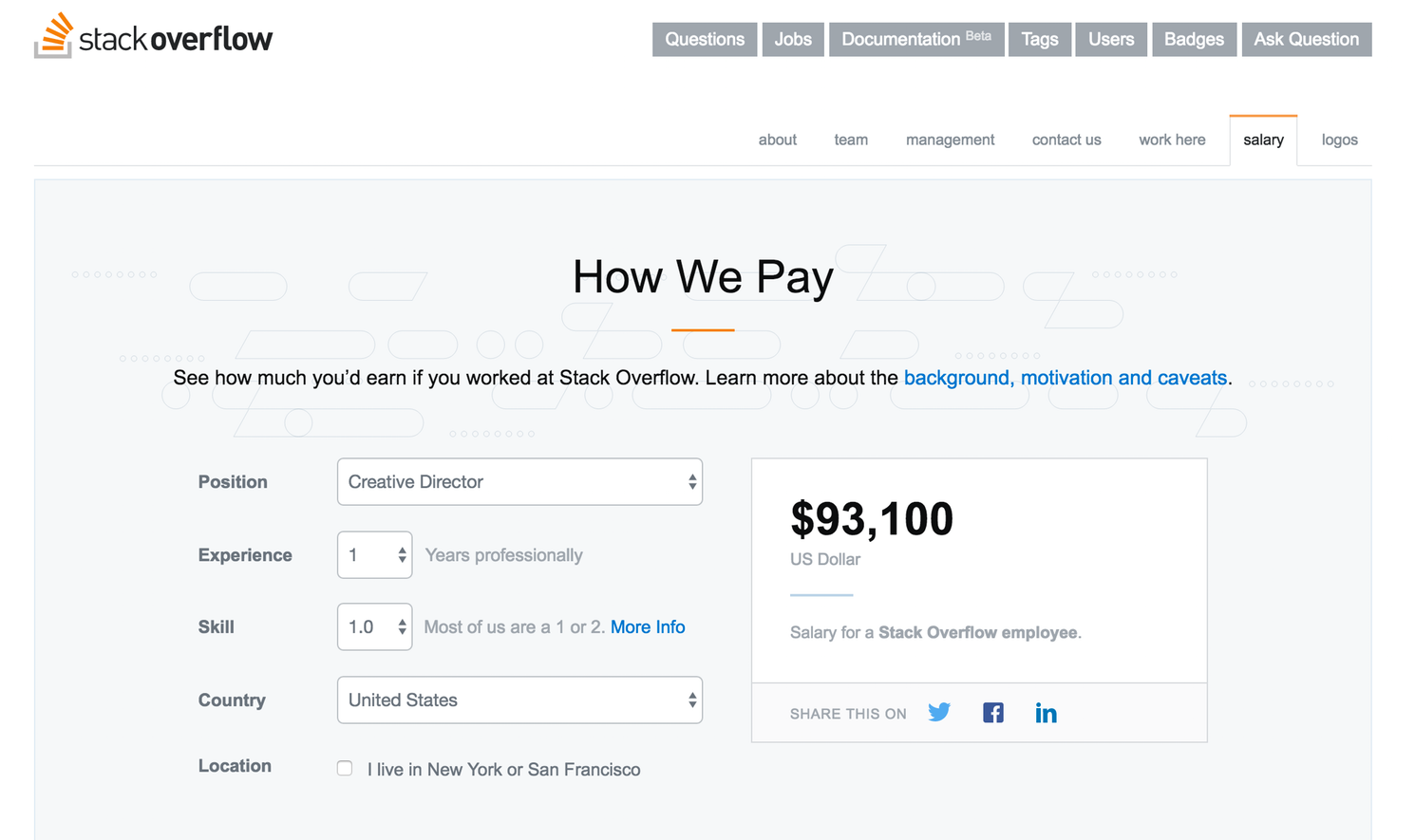
Buffer
The Transparent Buffer Salary Calculator means that anyone can see what they might make at Buffer by plugging in their own data for location, experience and so forth.
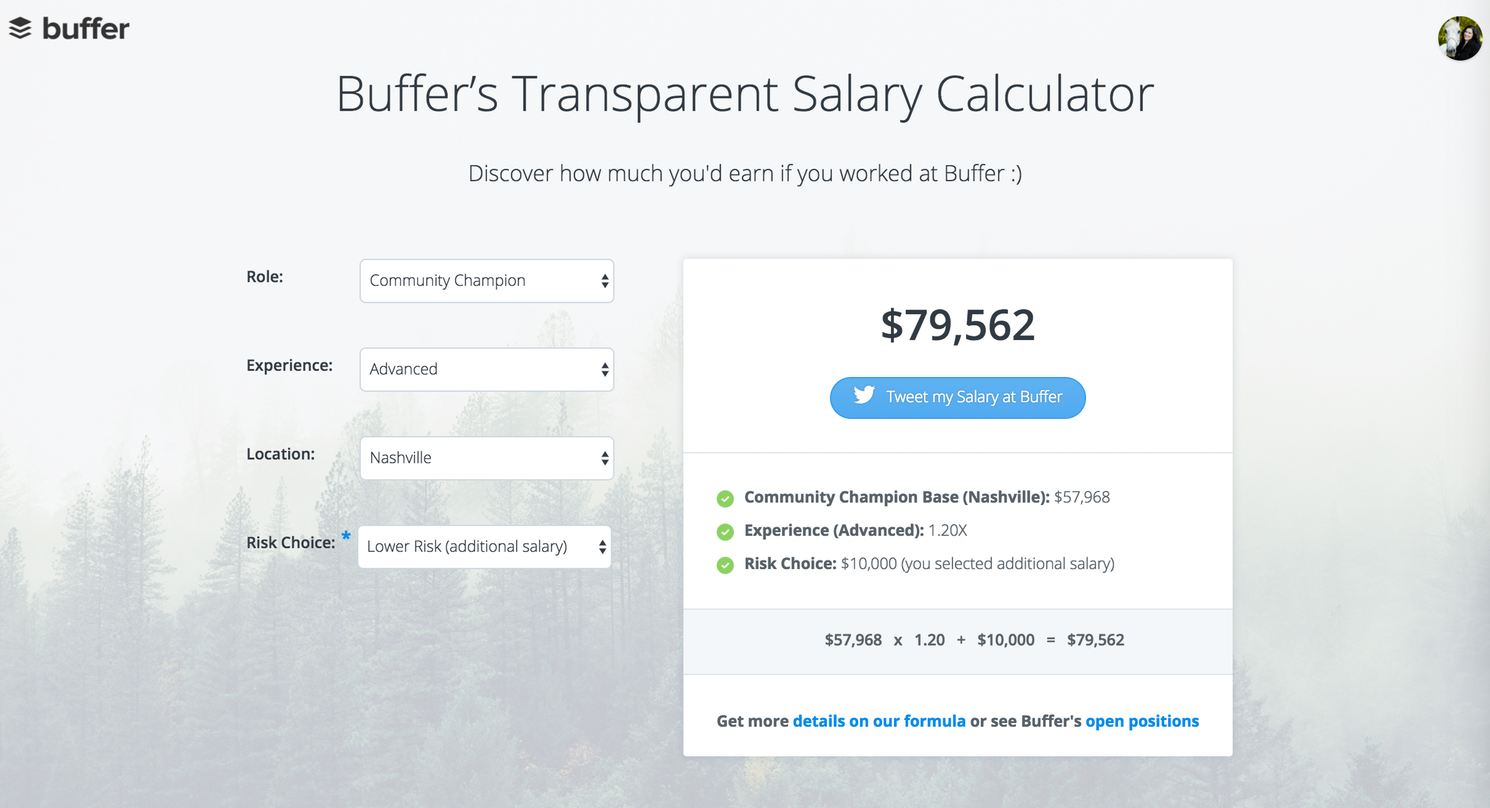
Although this isn’t an overall industry calculator, we’ve been blown away by how many startups have adopted our salary formula. Hopefully the calculator and a look at how we create our formula can give you a few extra data points as you go into a negotiation.
Here’s what I’d make starting out at Buffer right now. (My current salary is a bit higher because of our 3% loyalty bonus for each 1 year of employment and an additional $3,000 for my dependent.)
We have our entire salary spreadsheet online at Buffer. If we don’t have your salary in the calculator, you can find more about any particular role in the spreadsheet.
How different are they?
We put together the results from every salary calculator for a junior developer living in New York (we chose developer since it was a role that each of the calculators offered). Here are the results (from low to high):
- PayScale: $48,338 – $97,403
- Glassdoor: $59,296
- LinkedIn: $75,000
- Buffer: $98,950
- StackOverflow: $104,900
- Hired: $112,00
Why are they so different?
The focus for each of these calculators is something to keep in mind. Half of these calculators focus on salaries from the tech industry.
For StackOverflow and Buffer, they are specifically these companies and how they pay people. Hired tends to be very large tech companies who use Hired for recruiting as well. The tech industry in general is known for paying above industry average to try and get the top talent.
LinkedIn, Glassdoor and PayScale are all using salary data from various sources and industries. They might have more data from industries other than tech which could be a bit lower for developers in particular.
Over to you
Are you up for giving a salary calculator a go? Did you find any differences between the calculators? What do you find most difficult about job negotiation? We’d love to hear your thoughts in the comments!
Try Buffer for free
190,000+ creators, small businesses, and marketers use Buffer to grow their audiences every month.



